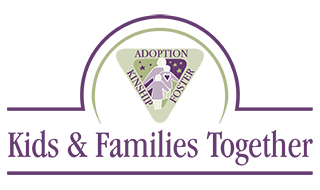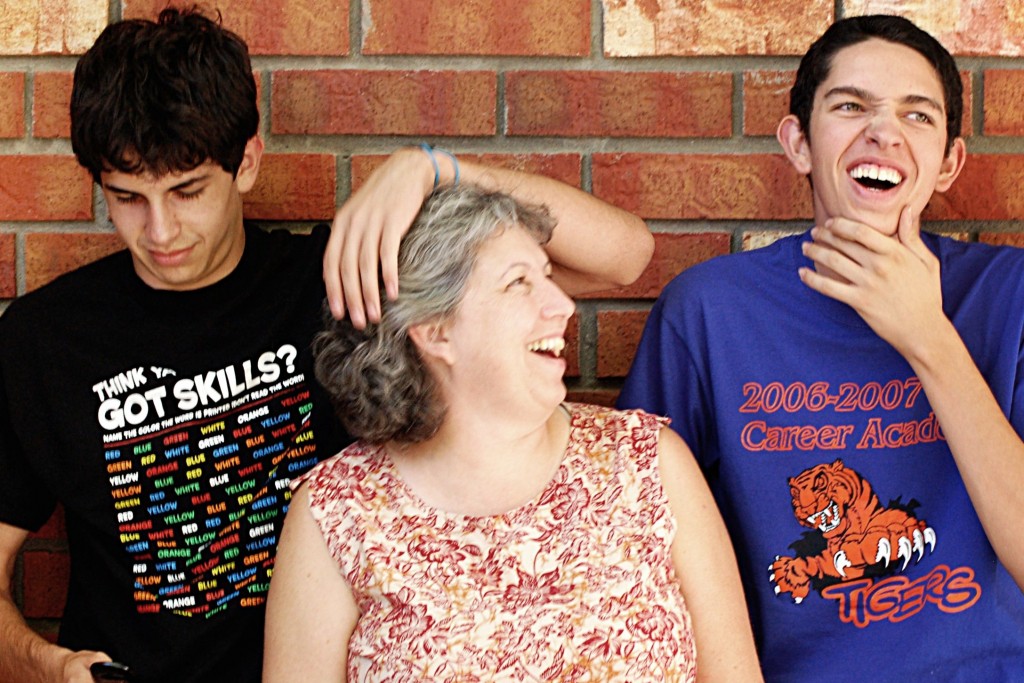Having Faith April 2016
Posted on April 1, 2016 by Kids & Families Together
Dear Faith,
We have two adopted children ages 9 and 11. We are fully invested in being therapeutic parents and we totally see the value in working with specialized professionals who are trained to work with adoptive, foster and kinship families that understand the complexity of some of our unique challenges. I also know how strongly Kids & Families Together talks about the importance of relationship-based practices. For a long time, my husband and I just wanted what we thought were negative behaviors, to just go away; but through lots of education, support and self-reflection, we are beginning to understand that it isn’t so simple. Could you please help me to explain to others why relationship-based practices are so necessary for children with early neglect and trauma in their backgrounds?
Changing my ways in Santa Paula
I always get excited when a parent is invested in being a therapeutic parent and creating a strong emotionally secure relationship with their child. Relationship-based psychotherapy starts from the premise that behavior has meaning and that discovering and addressing the underlying problem will, in the long run, be more effective than treatment that is focused solely on symptom reduction. Among youth who have experienced trauma, symptoms can manifest externally or internally-from aggression to withdrawal; from recklessness to inhibition and hyper-vigilance. The focus on behavior does not address the underlying emotional and developmental impact of trauma.
Relationship-based therapy recognizes that all kids, but especially kids that have spent time in foster care, need their caregivers to focus first on building a trusting relationship. This will take time. A child who has moved around in various foster homes and has been particularly traumatized by earlier life experiences will take even longer to build trust because of all their experiences where their trust was betrayed. Caregivers that truly understand this will work harder on meeting the emotional needs of their child and will be more likely able to work on their own unresolved trauma when they find themselves too often responding to their child’s behavior in an angry way and focusing solely on behaviors and blaming their child. Without an adequately secure and safe relationship, a child will not generally improve their behavior. The child will often stay stuck believing that the world is not safe, that caregivers can’t be trusted and at their core, that they are unlovable.
At Kids & Families Together, our relationship-based clinicians work closely with the primary caregiver and the child to help build a secure and emotionally safe relationship between the two of them. The clinician helps the caregiver to pay particular attention to early childhood experiences and how they influence psychological development, including how traumatic experiences have shaped the child’s identity and relationships. This is true for both the caregiver and the child and our clinicians often work with the caregiver on their own attachment history to better understand their own unresolved trauma from their past and how it is currently effecting the relationship with their child. Caregivers need support too! Self- understanding of the caregiver is essential to truly understand their child in meaningful and important ways. Hopefully, the caregiver and the clinician are working as a team in the best interest of the child. By reviewing and revisiting aspects of the past in the context of a trusting relationship with a therapist and a therapeutic caregiver, a child can learn new ways to understand their own feelings, thoughts, and actions. Developing these internal resources will help a foster or adoptive child to more effectively address and manage their emotions and thinking, but also to engage effectively with other people. Ultimately, learning to be in a healthy relationship with a primary caregiver regardless of the child’s age, will help a child to develop and maintain healthy relationships in other contexts.
-Faith
Category: Having Faith, Latest News, Newsletters Tags: Adoption, Attachement, stress, trauma
 Kids and Families Together
Kids and Families Together